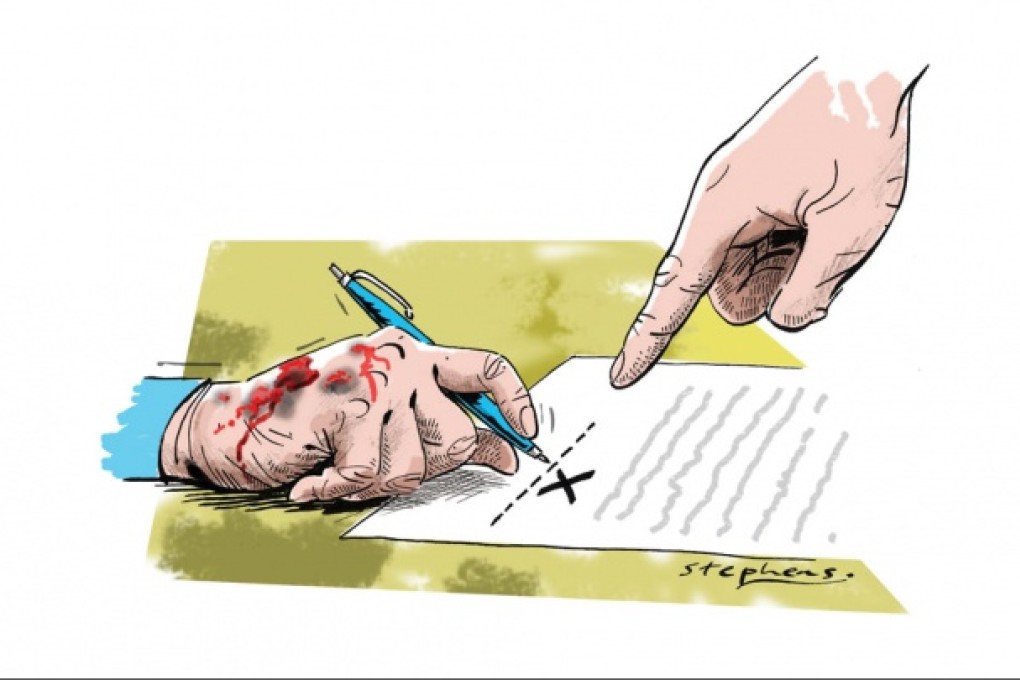China must stop extracting confessions through use of torture
Zhou Zunyou says the case of an uncle and nephew who served 10 years for a crime they did not commit only adds to China's disgracefully long list of wrongful convictions through use of torture

The provincial court of Zhejiang recently reversed its 2004 verdict of a suspended death sentence for Zhang Hui and a 15-year prison term for his uncle Zhang Gaoping on charges of rape and murder. The two were cleared due to the inadequacy of the previous evidence and admission of new evidence. They had spent 10 years behind bars.
Shortly afterwards, the Zhejiang police publicly apologised to the pair and their family for botching the investigation. Zhejiang's political-legal commission, a party organ overseeing the work of police, public prosecutors and judges, vowed to carry out a comprehensive investigation and punish anyone found responsible for the wrongful convictions.
This tragedy began with a generous offer of help on May 18, 2003, when the pair, on their way from Anhui province to Shanghai, allowed a 17-year-old village girl to hitch a ride. They dropped her off at her destination in Hangzhou the next morning. Later, she was found dead in a ditch. In April 2004, the intermediate court of Hangzhou sentenced the nephew to death and the uncle to life imprisonment for raping and killing the girl. On appeal, in October 2004, the provincial court of Zhejiang spared the life of the nephew and commuted the uncle's sentence to a 15-year prison term.
After their release, the public have slowly learned the facts behind the wrongful convictions. In media interviews, the uncle revealed the horrifying treatment he had undergone during interrogations: sleep deprivation for seven consecutive days, hunger, forced standing for a long time, forced squatting with his hands cuffed behind his back, pouring water into his nostrils, or stubbing out cigarettes on his skin. The nephew was similarly tortured. Yet, despite their treatment, both denied the charges. When they were sent back to their cells in the detention centre, other detainees managed to force them through acts of violence to sign statements of confession that turned out to have been drafted under police orders.
The torture case triggered a huge public outcry. The anger has been directed specifically at a female detective, Nie Haifen, who was in charge of the case. Ironically, back in 2006, a high-profile CCTV programme reported on the detective's great talent for investigations and labelled her a "genius detective". In the programme, she recounted how she had compelled the pair to confess through the use of tushen, literally "immediate and intensive interrogation", and how she had been able to obtain "unimpeachable" evidence by looking into the details. In hindsight, the tushen was nothing but torture.
This acquittal is just one example of numerous appalling torture cases in recent memory. In 2000, in Yunnan province, policeman Du Peiwu was released after being wrongly jailed for the killing of his wife and her lover after the real murderers were caught. Du had been tortured by other officers into confessing.
In 2010, farmer Zhao Zuohai from Henan province was freed after having spent 10 years in jail. He was tortured into confessing to murder, but was acquitted when the alleged victim turned up alive.